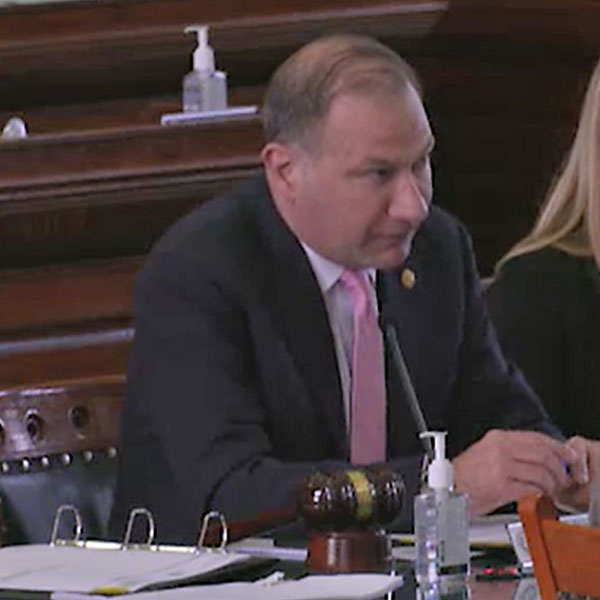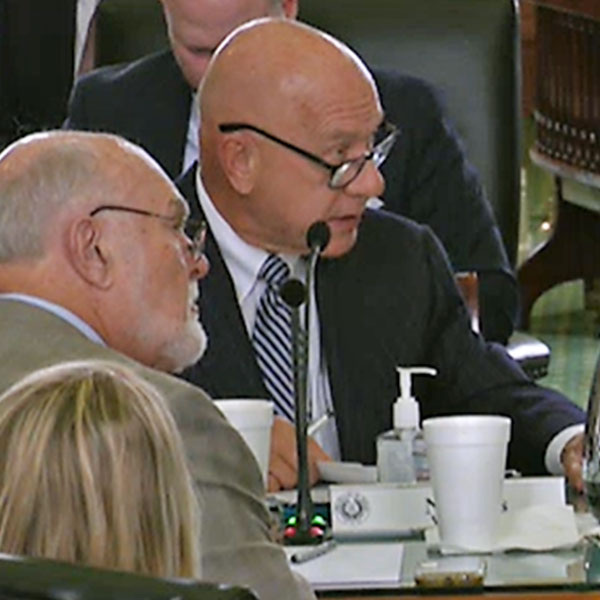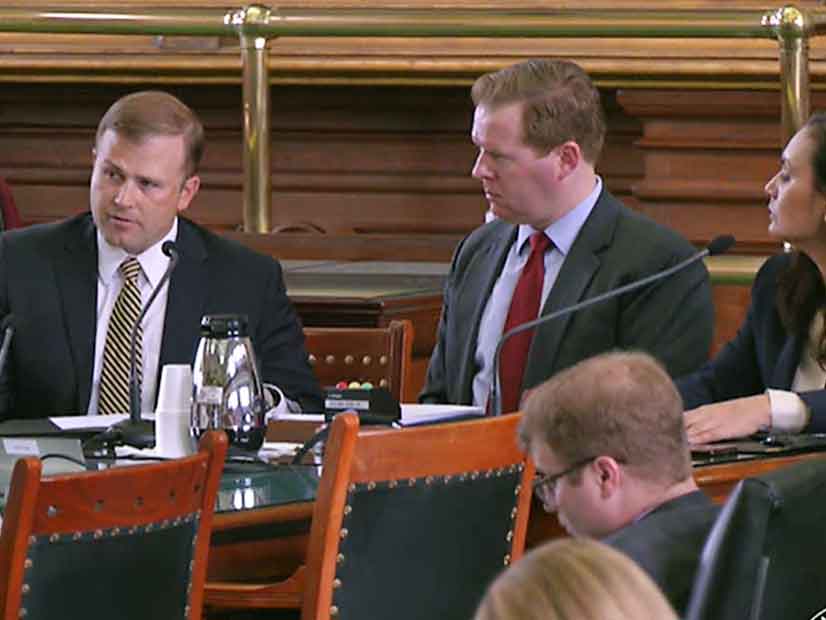ERCOT on Tuesday released a 60-point roadmap to improve the Texas Interconnection’s reliability and resource adequacy as the grid operator continues to address lawmakers’ concerns.

Interim CEO Brad Jones said the roadmap identifies the steps ERCOT and the grid can do better “to serve Texans, to improve reliability, to communicate, and also work with the [Public Utility Commission] in a more cooperative manner than we have in the past.”
The “Roadmap to Improving Grid Reliability” was released shortly before Jones and the PUC’s three members testified before the Texas Senate’s Business and Commerce Committee about June’s weeklong conservation appeal and Gov. Greg Abbott’s recent letter ordering the commission to take immediate action to increase the ERCOT market’s capacity and strengthen reliability.
“My guarantee to each of you is that we intend to communicate more clearly than we have in the past,” Jones said, “to remove industry jargon and speak to each other more clearly in a way that we understand each other; to serve all Texans and all Texas businesses in a reliable way that will continue to drive the growth of business and industry in Texas. That’s my promise to you.”
The roadmap, originally promised June 21, intends to strengthen ERCOT’s oversight of the market by creating unannounced inspections of power plant facilities and CEO certifications of weatherization. It also calls for a review of the market’s current and projected fuel mix, evaluating market changes that would incentivize “sufficient dispatchable resources” and improve fuel security, and considering on-site fuel supply.
The initiatives echo Abbott’s letter, which would essentially subsidize baseload generation while penalizing renewable resources for their lack of reliability. (See PUC Debates Answers to ERCOT’s Reliability Issues.)
Jones did offer some hope to renewable energy interests dismayed by Abbott’s directive when he said he’s been working closely with the PUC on those “specific items to attract and retain the type of generation we need to balance our wind and solar renewable fleet.”
“We’re also working to make sure we can provide an equitable market for all generators, that we recognize the benefits each generation brings to this market and that we provide the appropriate value for the attributes they bring,” Jones said.

Committee Chair Charles Schwertner (R) opened the hearing by reminding the audience that the grid’s reliability remains a concern following the February winter storm, the April emergency alert and June’s call for conservation. He noted that Abbott’s two-page letter mentioned reliability 15 times and that this was senators’ chance to hear from the PUC and ERCOT about actions being taken to address their concerns.
When prompted by Schwertner, the commissioners — all three appointed in recent months by Abbott — said they believed they had the statutory authority from the recent legislative session to implement the new laws and the governor’s directives.
“There is a tremendous amount of direction and mandates in that bill,” Chair Peter Lake said, a reference to the omnibus Senate Bill 3. (See Texas Legislators Finish Work on Electricity Market — for Now.)
Sen. John Whitmire (D) told Jones it would have been helpful to have more time to review the report and asked why so many plants were on outages at the same time last month. Jones noted that the outages, three times above normal, were not maintenance outages and used the analogy of a flat tire to make his point.
“When you have a flat tire, you have to pull over to the side of the road,” Jones began.
“I’m not sure that’s the best analogy,” Whitmire said. “It’s alarming that the amount of maintenance outages caught you off-guard.”

Jones admitted that the number of outages did catch ERCOT by surprise, leading to a conservation notice that helped the grid operator meet demand without resorting to emergency measures.
“We need to find better incentives to make sure those generators make planned maintenance when they have that opportunity and make sure they have the revenues to support the maintenance,” Jones said.
“Y’all have the responsibility. We have to explain it [to our constituents],” Whitmire said. “We just don’t need any more surprises.”
“You’ve hit on the crux of the challenge,” Lake said. “At the same time we need more reliable generation, as clearly indicated in Senate Bill 3, we’ve got to provide economic incentives for those same companies to invest money not only in existing generation, but new generation in Texas.”
Lake referred to the ERCOT market’s $9,000/MWh price cap during scarcity conditions, designed to incent new generation investment in generation, as a “crisis-based business model.”
“The only financial award comes the closer you get to the crisis, which is not good for consumers. We need to have a market design so that if you provide reliability, that’s where the financial incentive is presented,” Lake said.
Cautioning the senators, he said, “Believe me: It’s not a small task that can be accomplished quickly. Nobody I’m aware of nationally or globally has figured out how to implement intermittent renewables with reliability.”
Jones noted 20 of the roadmap’s 60 initiatives have already been completed. The other 40, all on track, include:
- eliminating barriers to distributed generation, energy storage and demand response so more resources can participate in the ERCOT market and also maintain adequate reliability;
- addressing the Lower Rio Grande Valley transmission limitations, up to and including the construction of new transmission capacity;
- assessing and developing a plan to improve the accuracy of generation reports to ERCOT;
- assessing the potential costs and benefits of increased transmission, both internal and external to ERCOT; and
- increasing coordination with other grid operators.




